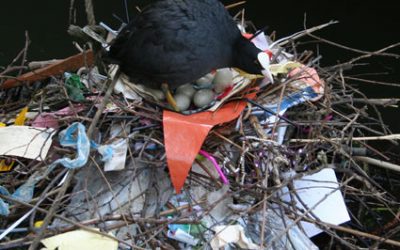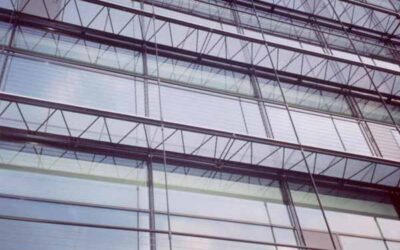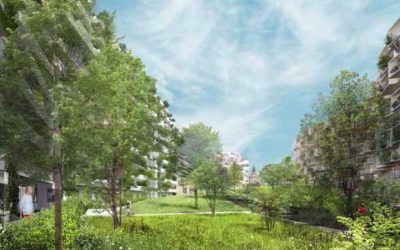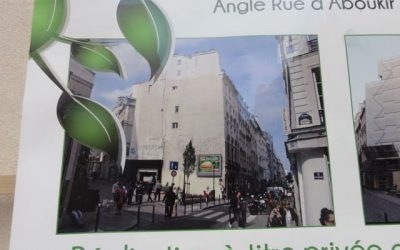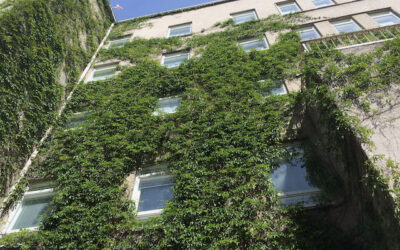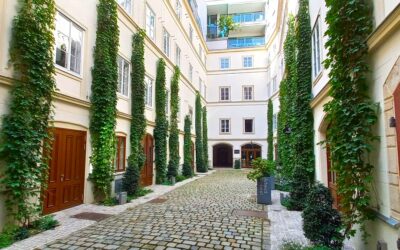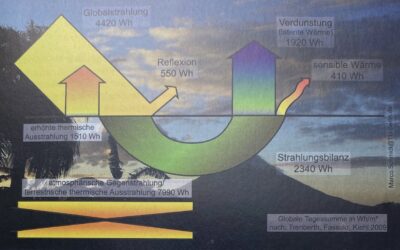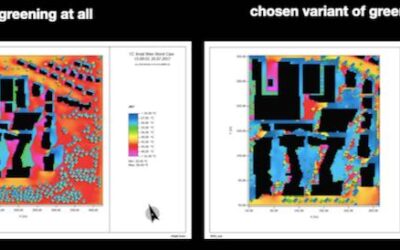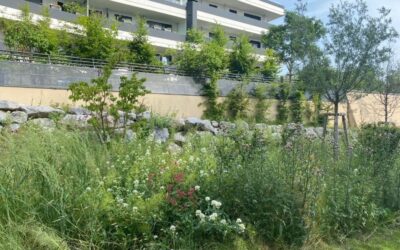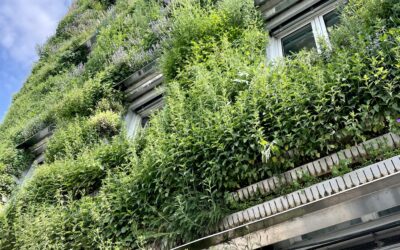António Guterres, UN-Secretary-General:
REMARKS on CLIMATE CHANGE

Speech at UN General Assembly, New York, 26.9.2018
…“Climate change is the defining issue of our time – and we are at a defining moment. Many times journalists ask me what are my priorities. I always say we have many priorities in the UN – peace and security, human rights, and development – but I would say that this is the absolute priority.
When world leaders signed the Paris Agreement on Climate Change three years ago, they pledged to keep global temperature rise to well below 2 degrees Celsius above pre-industrial levels and to work to keep the increase as close as possible to 1.5 degrees. These objectives were agreed as the bare minimum to avoid the worst impacts of climate change.The commitment was universal – but we are nowhere close to where we need to be to meet these minimum targets.
Climate change is indeed running faster than we are, and we have the risk to see irreversible damage that will not be possible to recover if we don’t act very, very quickly.
According to a United Nations study, the commitments made so far by Parties to the Paris Agreement represent just one-third of what is needed. We need to do more and we need to do it quicker: we need more ambition and accelerated action by 2020. If we do not reverse the current trend of emissions by 2020, it may be impossible to meet the 1.5 degree goal. And that is what leaders committed to do in Paris.
The effects of climate change are already upon us, with disastrous consequences for people and all the natural systems that sustain life in the planet. Just last year, the economic costs of climate-related disasters hit a record: US$320 billion. We know what we need to do. We have the resources and technologies at our disposal.
Climate action makes moral sense, it makes business sense, and it is the keystone in our efforts to achieve sustainable development that leaves no one behind. So why is climate change faster than we are?
The only possible answer is that we still lack strong leadership to take the bold decisions needed to put our economies and societies on the path of low-carbon growth and climate-resilience.“
…“ I call specifically on the countries that account for the majority of greenhouse gas emissions. In this regard, I will be reaching out to the leaders of the G20, the group of countries that account for around 80% of the global greenhouse emissions. Only courageous leadership will make the goals of Paris a reality. It is also essential that governments fulfil their pledge to mobilize 100 billion dollars a year by 2020 for climate action.
The time is long gone when we could afford delay. Each day brings further evidence of the mounting existential threat of climate change to the planet. Every day that we fail to act is a day that we step a little closer towards a fate that none of us wants — a fate that will resonate through generations in the damage done to humankind and to life on Earth.
Our fate is in our hands. Let us finally commit – together — to rise to the challenge before it is too late.“
WILDPARK CITY
Die dichte Stadt als Natur – was heisst das über das Verhältnis von Wildtieren und Menschen? Helga Fassbinder legt eine verblüffende Sichtweise dar und stützt sich dabei auf den niederländischen Biologe Jelle Reumer, Direktor des Naturhistorischen Museums Rotterdam.
Glasfassaden und Begrünung
Ein sehr aktuelles Thema: die übermässig vielen Glasfassaden, die zur Aufheizung der Städte beitragen. Wie kann man hier mit Begrünung mildern? Architektin Prof. Mag.arch Silja Tillner und Architekt Dipl.Ing. Alfred Willinger berichten aus einem empirischen Projekt...
EIN BIOTOPE CITY QUARTIER FÜR WIEN
In Wien entsteht derzeit ein Quartier nach dem Leitbild ‚Biotope City‘ – sehr dicht, sehr grün, eine neue Heimat für Homo sapiens, Flora und Fauna…
Stadt lebenswert gestalten – Bürgerschaftssinn und Unternehmergeist
Für eine lebenswerte Stadt bedarf es einer aktiven Zivilgesellschaft in Symbiose mit Flora und Fauna, moderiert durch die Politik
– Helga Fassbinder –
Gebäudebegrünung und Brandschutz
Ein wichtiges Thema ! Kürzlich hat die Gemeine Wien neue Förderungsbestimmungen für Bauwerksbegrünung und Entsiegelung festgelegt - sie sind vorbildlich und werden sicherlich zu einem Schub an Begrünungen gerade auch bei Gebäuden im privaten Bereich führen. Und...
Mehr Geld – Mehr Grün: Neue Förderrichtlinien Wiens
Vortrag von Jürgen Preiss, Magistratsabteilung für Umweltschutz Der Vortrag ist nun auf dem Youtube von Biotope City Journal zu sehen. https://www.youtube.com/watch?v=Y26cEdhyFcc Vor kurzem hat der Gemeinderat von Wien neue Förderungsrichtlinien zur Gebäudebegrünung...
Über einen Paradigmenwechsel von der CO2-Mono-Thematik zu Wasser, Vegetation und Boden und die Frage, warum das Thema anthropogene Klima-Erwärmung älter ist als 100 Jahre.
Mit Dank an den Herausgeber von ‘Regenwassermanagement 2024’ des Verlags Ernst & Sohn, Berlin, verlinken wir hier einen Artikel von Marco Schmidt, der in dieser Nummer publiziert worden ist. Der Artikel fasst die Thesen zusammen, die Marco Schmidt in seinem...
SPACES AND SPECIES I: Architektur, Stadtentwicklung und Biologische Vielfalt. SPACES AND SPECIES I:
Eine Lab Talk Reihe von BUND Berlin und Aedes Metropolitan Laboratory zu artenschutz-gerechter Gebäudeplanung, gefördert durch die Berliner Senatsverwaltung für Mobilität, Verkehr, Klimaschutz und Umwelt (SenMVKU) 1. Termin: 6. Juni 2024 18:30 Uhr Ort: Aedes...
Mit dem Blick zurück in die Zukunft – aus der Vergangenheit lernen.
Über die Entwicklung Amsterdams im 17. Jh. als Paradigma blau-grüner Stadtplanng und über ein geglücktes Beispiel im heutigen Wien
Differenzierte Kosten-Nutzen Analyse der Effekte von Stadtgrün – Webinar mit Peter Küsters
Welche der grün-blauen Infrastrukturen sind das wirksamste Mittel zur Klimaanpassung und insbesondere gegen die zunehmende Hitze in unseren Städten: Dachbegrünung, Fassadenbegrünung oder doch Bäume? Welche Lösungen sind in Abwägung der Kosten das wirksamste Mittel der Wahl?
Urte Stahl
1993 bis 1995 Arbeit im Garten- und Landschaftsbau, in drei verschiedenen Betrieben 1995 bis 1999 Studium Landespflege mit Schwerpunkt Landschaftsplanung an der Fachhoch- schule Wiesbaden, Standort Geisenheim 1999 bis 2000 Freiberufliches Arbeiten in allen Sparten der...
POTENTIALE und ELEMENTE für ARTENVIELFALT im Siedlungsraum
Wir reden vom Klimaschutz – aber die viel grössere Bedrohung ist der dramatische Verlust an Biodiversität. Wie können wir dem auch im urbanen Raum entgegensteuern? Urte Stahl gibt Anworten zur Bewältigung dieser komplexe Aufgabe.
Die Immobilienwirtschaft entdeckt die grüne Stadt
Auch die Immobilien-Wirtschaft beginnt sich für die dichte Stadt als Natur zu interessieren! Schöner Artikel von Christian Hunziker über 4 Modellprojekte in Deutschland, der Schweiz und Österreich. Darunter auch die Biotope City Wienerberg: sie zeigt, dass selbst bei...
Die gesunde Stadt ist Grün
Vortrag von Prof.DDr. Daniela Haluza, Medizinische Universität Wien mit ausführlicher Diskussion - Nun auf dem youtube Kanal von Biotope City Journal ! https://www.youtube.com/watch?v=99TAbmpEI4k&t=8s In städtischen Ballungszentren stellt der Klimawandel eine...
Interessiert das Biotope City Konzept zu nutzen oder das Team zu erweitern?
Wir freuen uns über Ihre Beiträge oder sonstige Nachrichten!

